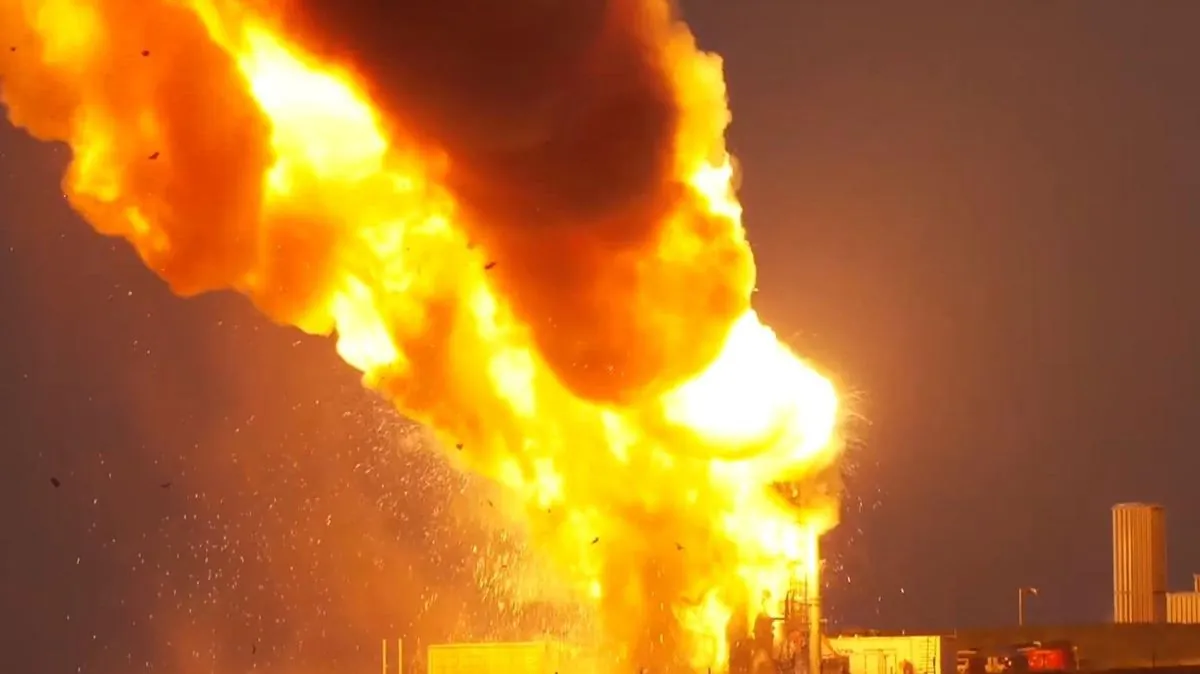Rocket Engine Explodes at Scottish Spaceport During Test Launch
A rocket engine exploded during a test at SaxaVord Spaceport in Scotland's Shetland Islands. No injuries were reported, and the incident is under investigation as the UK pursues its space ambitions.

On 2024-08-19, a rocket engine explosion occurred during a test launch at SaxaVord Spaceport, located in the Shetland Islands off northern Scotland. Rocket Factory Augsburg (RFA), the German manufacturer responsible for the test, confirmed that no injuries resulted from the incident.
Video footage captured the dramatic moment when the engine exploded on the launchpad, engulfing the entire structure in flames and thick smoke. This event has raised concerns about safety protocols and the challenges faced in the pursuit of space exploration.
SaxaVord Spaceport, situated on the remote island of Unst, recently received its licenses from the Civil Aviation Authority. It holds the distinction of being western Europe's only fully-licensed vertical rocket launch port, designed for small rockets delivering payloads into low Earth orbit (LEO). LEO is typically defined as an orbit with an altitude of 2,000 km or less, crucial for various satellite applications.

RFA, founded in 2018 and based in Augsburg, Germany, was conducting tests at the spaceport in preparation for the UK's first vertical rocket launch into orbit, originally scheduled for autumn 2024. The company stated:
"The launch pad has been saved and is secured, the situation is under control and any immediate danger has been mitigated."
RFA is now collaborating with the spaceport and relevant authorities to investigate the cause of the explosion. This incident highlights the complexities and risks associated with rocket launches, which can have environmental impacts including air pollution and potential debris.
The UK has set ambitious goals to become Europe's leading destination for commercial spaceflight activities. The country aims to capture 10% of the global space market by 2030, with its space sector currently employing over 45,000 people and generating £16.4 billion annually. The global small satellite market, a key focus for facilities like SaxaVord, is expected to reach $7.4 billion by 2022.
In 2022, a separate site in Cornwall, southwest England, became the first licensed UK spaceport. However, unlike SaxaVord, Cornwall utilizes horizontal launches, where rockets are carried by aircraft to high altitudes before ignition. Vertical rocket launches, like those planned for SaxaVord, are generally more fuel-efficient for reaching orbit.
The development of spaceports in the UK is part of a broader strategy to boost local economies through job creation and tourism. This aligns with Scotland's long history of scientific innovation, including Alexander Graham Bell's invention of the telephone. As the investigation into the SaxaVord incident continues, it serves as a reminder of the challenges and importance of safety in the rapidly evolving field of commercial spaceflight.


































